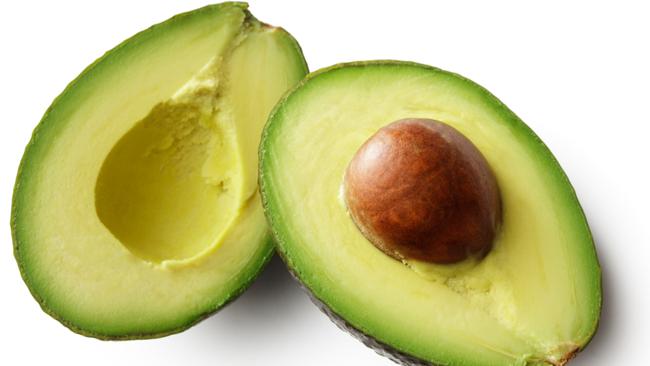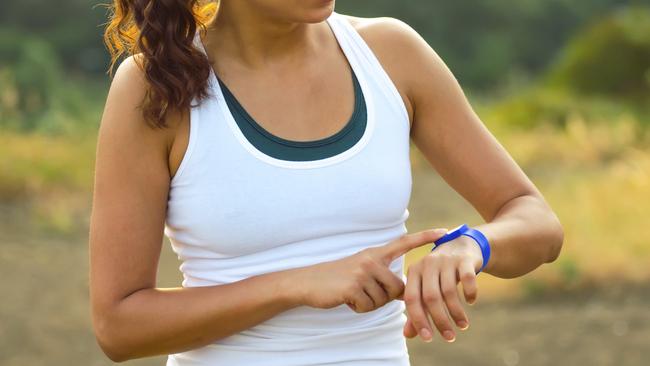Eight easy health hacks to do today
If you’re confused by too much advice on how to stay fit and healthy, start with these tips – and a slice of Jarlsberg.

If you feel overwhelmed with advice on how to stay fit and healthy, the best place to start is with easy health hacks that are scientifically proved to make a difference. Everything from the cheese you choose to the houseplants you buy to brighten up your living room can have an impact on your mental and physical wellbeing. Here’s our pick of the latest small steps to big improvements.
Eat Jarlsberg to boost your bones
If you want stronger bones and teeth, opt for a daily slice of Jarlsberg, the nutty, mild Norwegian cheese with distinctive holes. Reporting in the BMJ, researchers found that components in Jarlsberg make it better at bone-building than other varieties of cheese. Healthy females in their twenties and thirties were given either a 57g slice of Jarlsberg or 25-50g of camembert daily for six consecutive weeks and then told to swap (so the group provided with camembert then consumed Jarlsberg for a further six weeks). While both cheeses are made from cow’s milk and have similar levels of fat and protein, Jarlsberg is a good source of vitamin K2, important for bone health, while camembert is not. Blood samples taken every six weeks showed that the Jarlsberg group not only had higher levels of vitamin K2 but of osteocalcin, a hormone associated with strong bones and teeth, suggesting that the cheese has specific skeleton-enhancing effects.

There’s some evidence that the bacterium (Propionibacterium freudenreichii) in Jarlsberg produces a substance called DHNA, which may provide additional benefits by helping to combat bone thinning. The nutrition therapist Ian Marber says Jarlsberg could be one element of a bone-friendly diet. “Strong bones require a regular consumption of calcium, vitamin D, vitamin K and magnesium,” Marber says. “Try to include a variety of other foods that provide these nutrients, including leafy green vegetables, nuts, lentils, yoghurt and beans.”
Walk faster to lower your biological age
If you are one of life’s dawdlers, you could do worse than pick up your walking pace, aiming for 100-130 steps a minute – it could lead to a younger biological age. Dr Paddy Dempsey, a research fellow at the University of Leicester and the National Institute for Health Research Leicester Biomedical Research Centre, studied genetic data from 405,981 middle-aged UK Biobank participants and found a clear link between faster walking and longer telomeres, the protective structures at the end of chromosomes that shorten with age.
Those people who had spent a lifetime walking briskly had a biological age the equivalent of 16 years younger than slowcoaches. “In addition to increasing overall walking, those who are able could aim to increase the number of steps completed in a given time, such as by walking faster to the bus stop,” Dempsey says.

Cut calories by 14 per cent to live longer
Restricting calorie intake has long been shown in studies to increase the lifespan of laboratory animals, but Yale University researchers recently showed how even moderate calorie-cutting can help people to live healthily for longer too.
Reporting in Science, they found that 200 participants asked to reduce calorie intake by 14 per cent from their usual level – the equivalent of 350 fewer calories for someone who routinely eats 2500 calories a day – displayed markers associated with improved longevity. Compared with those who didn’t cut calories, there were positive changes to the thymus, a gland that produces immune-boosting T-cells and which typically ages faster than other organs, of the calorie restrictors.
An ageing thymus leaves older adults more at risk of illness, but in those restricting calories the thymus gland produced more T-cells after two years. “The fact that this organ can be rejuvenated is, in my view, stunning because there is very little evidence of that happening in humans,” says Vishwa Deep Dixit, a professor of pathology, and immunobiology and comparative medicine, and one of the authors of the study.
Eat an avocado a day to lower your cholesterol
There have been claims that an avocado will blast belly fat, but while the latest research suggests the fruit has no significant effect on reducing your weight or waist circumference, nor did it increase them – but it was shown to help to lower unhealthy cholesterol levels. Joan Sabate, a professor of nutrition at Loma Linda University, claims that the extra calories from eating an avocado don’t “impact body weight or abdominal fat, and it slightly decreases total and LDL [so-called bad] cholesterol”. The six-month trial, involving more than 1000 overweight participants, found that adding a daily avocado to their diet resulted in people eating healthier foods overall.
It follows a paper in the Journal of the American Heart Association this year, in which Harvard researchers showed that people who ate “at least two servings of avocado each week had a 16 per cent lower risk of cardiovascular disease and a 21 per cent lower risk of coronary heart disease” compared with those who never or rarely ate avocados. “The greater benefits come if you replace salty and fatty processed foods with ingredients such as avocado,” Marber adds.

Stretch to preserve your brain power
If jogging and cycling are not your thing, try daily stretching and balance exercises to prevent the mild cognitive decline often associated with ageing. That’s the advice of Laura Baker, a professor of gerontology and geriatric medicine at Wake Forest University School of Medicine, who presented her findings at the US Alzheimer’s Association International Conference this month.
Prof Baker asked 257 previously sedentary people aged 65-89, all with mild cognitive impairment, to do two sessions a week of 30-40 minutes of moderate-intensity aerobic exercise on a treadmill or stationary bike, or of stretching and balance exercises – such as quad and hamstring stretches and balancing on one leg – for the same amount of time. After 12 months there was no deterioration in cognitive function in either of the activity groups, but there was a decline in a matched study of people who did no exercise. “For me, the most positive result is prevention of [cognitive] decline,” Prof Baker says.
Use a fitness tracker to lose weight
Its alarms and reminders may be a tad irritating, but fitness trackers and smart watches have the power to motivate us to exercise more. Ty Ferguson, a researcher in health and human performance at the University of South Australia, looked at almost 400 studies involving 164,000 people for his paper in The Lancet. He found that people using wearable trackers walk up to 40 minutes, or 1800 steps, more each day, enough to bring about an average 1kg weight loss over five months. That might not sound a lot, but since the average adult gains 0.5kg in weight each year, losing double that is “significant”, Mr Ferguson says.

Take a short stroll after meals to protect your heart
Walking after eating will prompt your muscles to use glucose circulating in the bloodstream. This helps to control blood sugar levels, which could eventually reduce the risk of heart disease and type 2 diabetes.
Aidan Buffey, a sport and exercise science student from the University of Limerick, says that just a few minutes of light walking instead of sitting is enough to have this effect. “Standing up for a few minutes will lower blood glucose, although not as much as light walking,” Mr Buffey says of his findings, published in the journal Sports Medicine. “And walking also helps to improve insulin control.”
Buy houseplants to reduce your stress
Indoor plants have always had a reputation for enhancing air quality, but a recent review of 42 studies confirmed that just being in the presence of houseplants has a positive effect on our health.
When people were asked to complete various tasks in rooms with or without greenery, it was clear that the presence of plants brought significant benefits: the participants performed better in tests of focus or memory recall, had greater tolerance to physical discomfort when putting their hands in icy water, and had lower levels of physiological stress.
Which plants should you choose? A study last month claimed that people responded more positively to plants with lush, bright green and rounded leaves. Plants found to have the most relaxing properties were ficus trees, such as the weeping fig (Ficus benjamina), and devil’s ivy (Epipremnum aureum).
– The Times





To join the conversation, please log in. Don't have an account? Register
Join the conversation, you are commenting as Logout